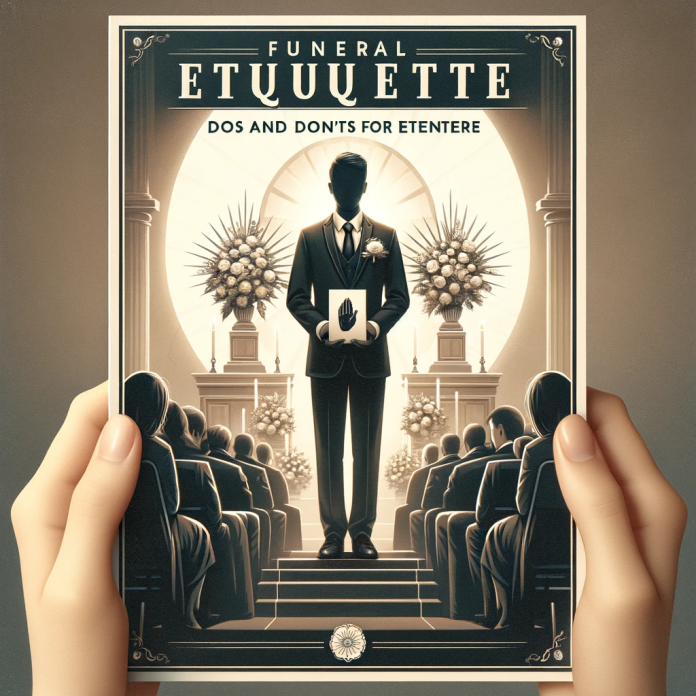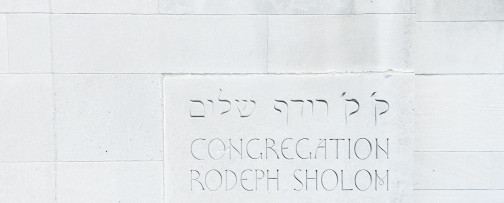Funerals are a time of mourning, reflection, and respect. They are also a time when etiquette is of utmost importance. This guide will help you navigate the dos and don'ts of funeral etiquette, ensuring you show the appropriate respect and consideration during these solemn occasions.
Understanding Funeral Etiquette
Funeral etiquette is a set of social norms and expectations that guide our behavior during funerals. These norms vary widely across cultures, religions, and personal preferences. However, there are some common principles that apply universally.
Understanding and adhering to funeral etiquette shows respect for the deceased and their family. It also helps maintain a solemn and respectful atmosphere during the funeral service.
The Importance of Respect
Respect is the cornerstone of funeral etiquette. This includes respect for the deceased, their family, and the other attendees. It is demonstrated through our actions, words, and even our attire.
Respect also means understanding and accepting the customs and traditions of the deceased and their family. This may require some research or asking questions beforehand, especially if the funeral is of a different culture or religion than your own.
Dos of Funeral Etiquette
There are several key actions to keep in mind to ensure you are following proper funeral etiquette.
Do Dress Appropriately
Appropriate attire for a funeral is typically conservative and understated. Dark colors are common, but the most important factor is that your attire is respectful and not distracting.
It's also important to consider the culture and religion of the deceased. Some cultures and religions have specific attire expectations for funerals, so it's a good idea to ask or do some research beforehand.
Do Arrive On Time
Arriving on time, or even a bit early, is a sign of respect. It also allows you to find a seat and settle in before the service begins. If you do arrive late, enter quietly and find a seat in the back to minimize disruption.
Remember, the focus of the day is on the deceased and their family, not on you. Arriving late can be seen as disrespectful and self-centered.
Do Offer Condolences
Offering condolences to the family of the deceased is an important part of funeral etiquette. This can be done in person at the funeral, in a sympathy card, or in a follow-up phone call or visit.
When offering condolences, it's important to be sincere and respectful. Avoid cliches and try to offer genuine comfort and support.
Don'ts of Funeral Etiquette
Just as there are actions to take to show respect and consideration, there are also actions to avoid.
Don't Use Your Phone
Using your phone during a funeral is considered highly disrespectful. It's best to turn off your phone or put it on silent before the service begins. If you must use your phone for any reason, step outside or find a private area to do so.
Remember, the focus should be on the deceased and their family, not on your phone or other distractions.
Don't Bring Uninvited Guests
Unless specifically invited or it is an open service, it's best not to bring guests to a funeral. Funerals are often intimate gatherings for family and close friends, and bringing uninvited guests can be seen as an intrusion.
If you're unsure whether it's appropriate to bring a guest, it's best to ask the family or the person who invited you.
Don't Leave Early
Leaving a funeral early can be seen as disrespectful. Unless you have a very good reason, it's best to stay for the entire service and any reception that follows.
If you must leave early, let the family or the person who invited you know in advance. Make sure to do so discreetly to avoid drawing attention to yourself.
Conclusion
Funeral etiquette may seem complex, but it all comes down to respect and consideration. By following these dos and don'ts, you can show your respect for the deceased and their family, and contribute to a respectful and solemn atmosphere.
Remember, every funeral is unique, and the most important thing is to show up and offer your support. With a bit of preparation and understanding, you can navigate any funeral with grace and respect.
Recommended Products
- Funeral Guest Book & Memory Card Set — Elegant guest book with matching memory cards for funeral and memorial services.
- COLIBROX Cremation Funnel Kit — Stainless steel funnel kit designed for carefully transferring ashes into urn jewelry and keepsakes.
- Mini Heart Urn — A small keepsake urn shaped like a heart for a portion of ashes


-banner.png)





